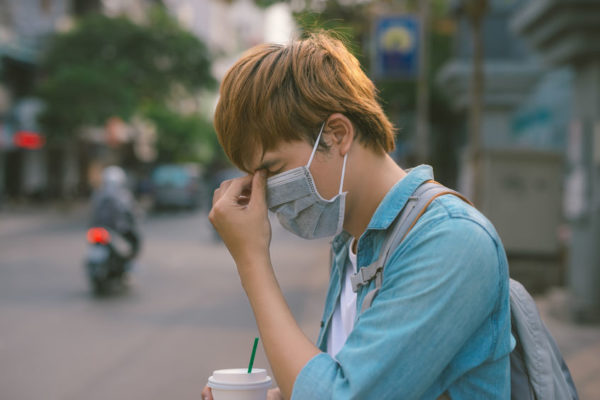By John Salak –
There is nothing like the outbreak of swine flu, bird flu or the now headline-grabbing coronavirus to spur an astronomical run on surgical masks. Look no further than what’s happening in China since coronavirus surfaced in December. Masks are disappearing from shelves, creating widespread shortages in key cities. And the rush isn’t limited to Asia. With the disease now spreading to Europe, South America and the United States, fears of contracting coronavirus are putting a squeeze on mask supplies in Seattle, parts of Texas, Washington, DC and elsewhere.
Rushing to cover up isn’t new. In the last 20 years outbreaks of Asian, Hong Kong, bird, swine and other flus have incited similar runs. Demand for masks even rose in the face of the outbreak of the deadly Ebola disease, even though Ebola is not spread through airborne particles. Heck, mask mania first gained traction a century ago during the great pandemic flu of 1918 that infected a third of the world’s population, killing up to 50 million people in the process—twice the number that died in the First World War.
Ultimately, all this means panic buying isn’t about to end anytime soon. The question is whether wearing a mask does any good. Sadly, it is very debatable. At best, wearing one probably falls into the “it couldn’t hurt” category.
Mask protection certainly has its place in medicine and hygiene. They can help ward off the effects of pollution and allergies for virtually anyone. Surgeons, anesthesiologists and other operating room personnel rely on masks to prevent them from spreading germs to their patients. They are also extremely effective at preventing people already suffering from flus, colds and other contagious diseases from spreading their sicknesses to others. In fact, in many Asian countries wearing a mask when you are ill is seen as a common (think expected) courtesy to others.
But the common masks most people wear have only a limited ability to prevent infection.
“Remember, surgical masks are worn to protect others, not to protect the wearer, which is a common misconception,” wrote Japanese health researcher Junki Takano. “You do this as a courtesy to prevent spreading your own infection to others. That is why surgical masks are used by surgeons to prevent germs from their mouth and nose from entering their patient’s body.”
Dr. Richard Klasco added to this conundrum when he explained that wearing a mask can significantly help prevent a sick person from spewing large viral droplets into their immediate area but are not nearly as effective at preventing the even more infectious “fine viral droplets” from getting out.
Admittedly Klasco and others like Dr. Sherif Mossad, a disease specialist at the Cleveland Clinic, acknowledge that masks offer some protection, but it is limited at best and the degree of help depends on the quality of the mask and whether it is used properly.
The reason mask protection against coronavirus fails to live up to its potential is that wearers usually don’t fit it properly; they move masks constantly, breaking their protective barriers; and they chronically bring their hands and fingers to their face, skirting the mask and delivering germs where they can do the most harm.
Dr. Mark Parrish added to mask bashing in The London Telegraph recently when he noted that the basic surgical masks most people use have only a limited impact at best. “As you breathe in and out, you’re breathing air from outside the face mask,” he explained. “So, it will stop a little bit but not huge amounts.”
If surgical masks aren’t your disease-blocking salvation, what is? The Centers for Disease Control and Prevention offers a better four-pronged prevention program. Get a flu shot; wash you’re your hands frequently with soap; avoid touching your face; and don’t come within six feet of someone who is sick.










